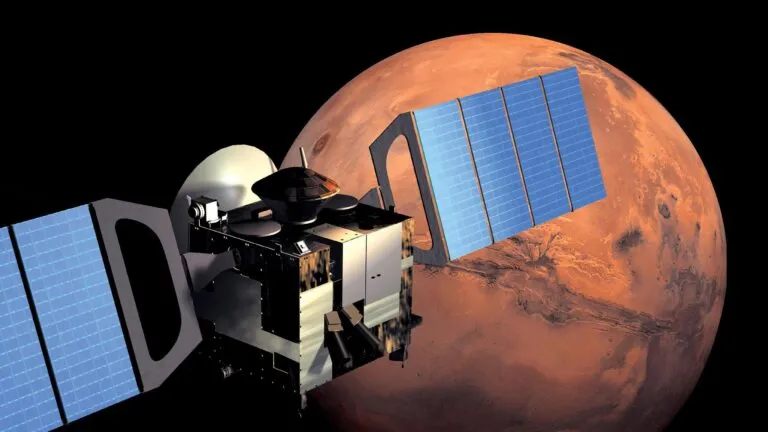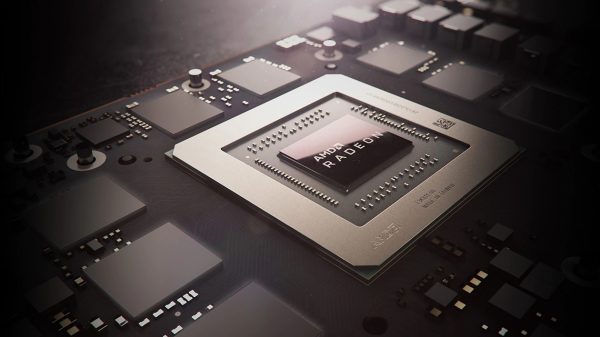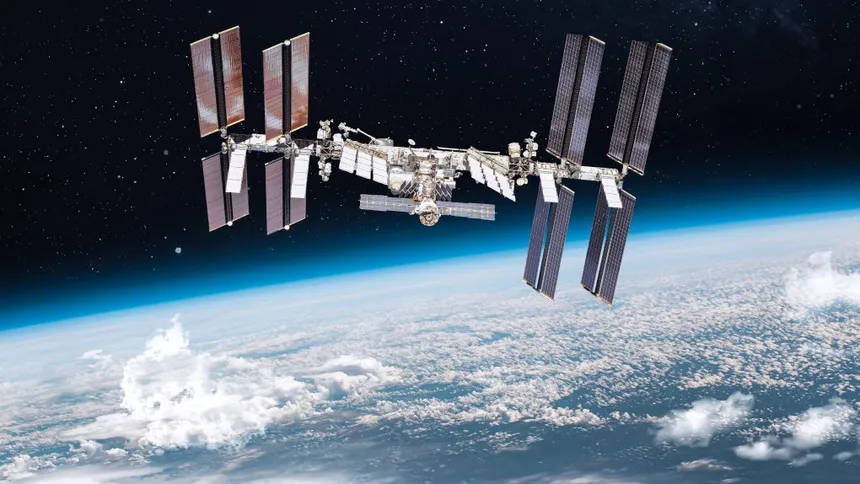The International Space Station (ISS) is once again dealing with a coolant leak, this time originating from a backup radiator attached to the Russian Nauka module. The Nauka module was added to the space station in 2021, while the radiator arrived in 2010 before being added to Nauka earlier this year.
According to a post on the messaging site Telegram, NASA’s Russian counterpart, Roscosmos, announced the apparent leak, stating that the main thermal control circuit of the module continues to operate normally, and the crew and the ISS are not in any danger. NASA also confirmed the leak, stating that at around 1 p.m. ET on Monday, flight controllers at the Johnson Space Center in Houston, Texas, used cameras on the outside of the station to inspect the area of concern and “observed flakes emanating from one of two radiators on the Roscosmos Nauka Multipurpose Laboratory Module.”
The team on the ground informed the seven-person crew aboard the space station of the apparent leak, and NASA astronaut Jasmin Moghbeli confirmed the presence of the flakes via a visual inspection made from the ISS’s Cupola module. As a precaution against contamination, the crew was told to close all of the shutters on the U.S. segment windows.
The primary radiator on Nauka is reportedly working normally, providing full cooling to the module and creating no adverse conditions for the crew or wider station. As of Monday evening, engineers on the ground are working with the crew to further analyze the situation, and NASA promised to offer an update when more information becomes available.

ISS Faces New Coolant Leak from Nauka Module
This latest incident follows two previous leaks at the ISS. In December 2020, a coolant leak occurred on a docked Soyuz crew capsule, resulting in two Russian cosmonauts and a NASA astronaut staying in space for six months longer than planned as Roscosmos exchanged the damaged capsule for a new one. An investigation concluded that the leak was likely caused by a tiny meteoroid striking the spaceship.
In February, another coolant leak occurred, this time affecting a Russian cargo spacecraft docked at the station. This was also believed to be the result of a small object striking the craft, rather than a manufacturing issue. The exact cause of the current leak is not yet clear, and it is unclear if it will affect a scheduled spacewalk currently planned for Thursday involving astronauts Loral O’Hara and Andreas Mogensen.
The incident serves as a reminder of the challenges and risks faced by astronauts and engineers working on the ISS, as well as the ongoing need for vigilance and response to unexpected issues. As the space station continues to operate, it will likely face new challenges and setbacks, but its dedicated crew and team of engineers are well-equipped to handle them.









































